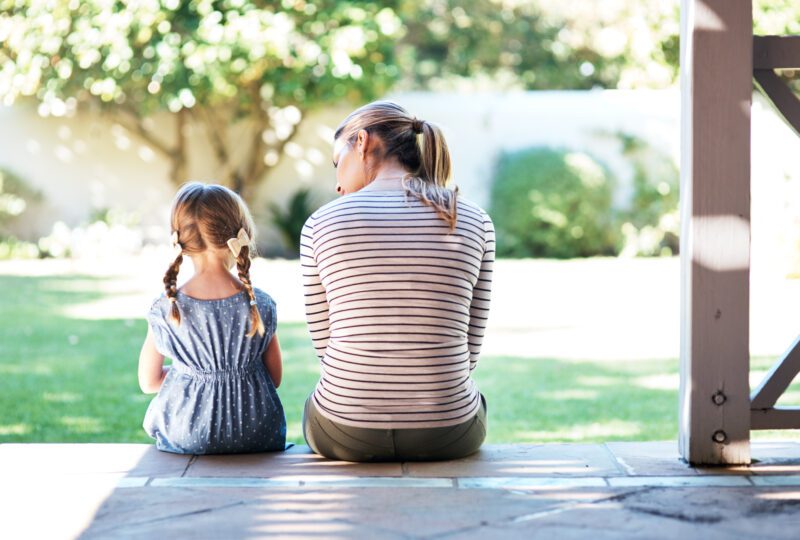
"5 Ways to Talk to Your Children About Your Divorce."
Divorce is typically a sensitive and emotional topic that can be challenging to discuss, particularly with children. Some parents are unsure about how much to tell their children about the divorce, while others are concerned about their ability to remain composed when discussing it with their children, some worry that telling their kids about the divorce will be too much for them, and they may wonder if it's best to keep them away from the situation.
Children will probably remember what you said, when and where it was heard. When it's time to tell your kids about your divorce, follow these five guidelines:
1- Plan and communicate with your children jointly:
Make sure you and your ex are on the same page before announcing the decision to your kids. A collaborative chat with your child can help reduce confusion, establish stability, a unified parental front, and reassurance during a period of change. Identify when, how, and what you'll tell your kids, while shielding them from your pain or rage. Announce it on a family-friendly weekend. Avoid it around holidays, special occasions, and before bedtime. If you and your spouse can't communicate or agree on a course of action, try engaging a mediator, divorce coach, or counsellor. Do not blurt it out impulsively in an emotional moment. That will not go well!
2- A non-blaming narrative:
Avoid blaming, pointing fingers, and giving specifics. Your kids, especially the older ones, will want to know why their lives will change, and you may feel compelled to tell the "truth"—"Mom had an affair" or "Dad is leaving us". This will cause your children to feel trapped in a loyalty bind, which is unhealthy. Prepare a generic explanation without blaming. The "truth" is less important than giving your kids the love and security they need. Whenever feasible, say "we”. “We can't be happy together," or "We tried." Our relationship is broken, and we can't seem to heal it. "We each have distinct life goals." "We like each other and want to be friends, but we aren't in love." Even the brightest and most mature children cannot comprehend these grownup challenges.
3- Explain the changes:
Your children will want to know where they will live, with whom they will live, and what will be different. Be honest about what you know and don't know to prepare your kids for change. Unless you plan to nest, the more you can tell your kids about their departing parent’s residence and visitation schedule, the better. Reassure them of the aspects of their lives that will not change, such as their school, friends, sports, and other activities. Be sure to let them know that your love for them will never change. That they can have a good relationship with both parents even if they don't live together and they are still a family with two homes.
4. Reassurance and empathy are crucial:
Children's fears of divorce may be influenced by TV or friends whose parents are divorced. Kids may believe they caused the divorce or that their parents don't love them. Ensure them that nothing they did could have caused or avoided this. During a separation, there are many unknowns, so don't make promises you can't keep. Losing their family may be upsetting for your children, and they may even wish for their parents to reconcile. Distinguish the fact that you and your ex are still co-parenting partners. While children may still wish for a reunion, setting boundaries will assist. Assure them that "all will be fine once we adjust."
5-Be available and give them time to adapt:
A parent may be concerned about their child's reaction and tempted to push them to express themselves. Children express their emotions in different ways. Some kids are expressive, while others are reserved and may struggle to adjust. It's important to know that your child will open up at their own pace and seek your help if you're available. The best things you can do are (1) listen to your kids and (2) create a safe environment where they feel comfortable talking to you.
While you may be confident in their future, they may not yet see it. Restrain your emotions. Help them adjust and heal by modelling your own recovery.